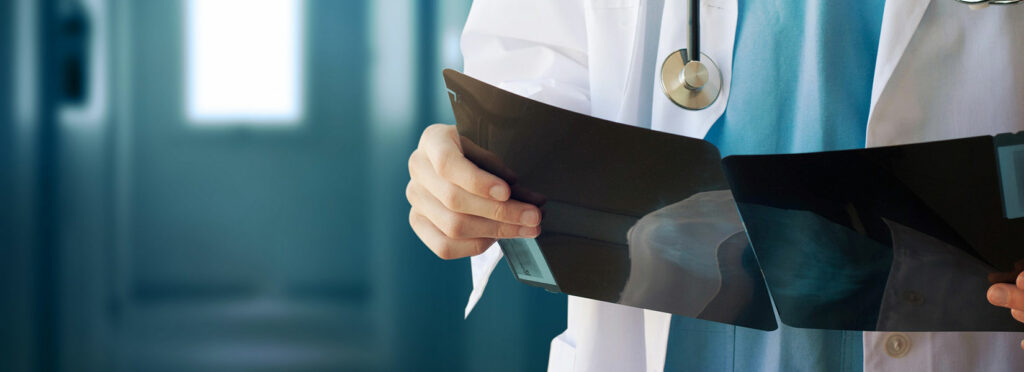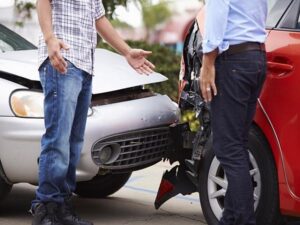If you’ve been in a car accident, your thoughts might be racing. You may feel dazed, frightened, or even relieved that you walked away from the crash. Maybe you’re trying to get back to your day, thinking, “I feel fine. I probably don’t need a doctor.” But here’s the truth: you should always go to the hospital after a car accident, no matter how you feel in the moment.
It’s not just about protecting your health, although that’s the most important reason. It’s also about safeguarding your future, documenting your injuries, and giving yourself the best chance to heal fully—physically, emotionally, and financially.
Let’s walk through the reasons why getting medical care right away is one of the most important steps you can take after a crash. After medical attention you must contact an auto accident lawyer near you to protect your rights and bring justice to your case.
You Might Be Injured Without Realizing It
After a car accident, your body releases adrenaline and endorphins, powerful chemicals that mask pain and keep you functioning during stressful events. While this response helps in emergencies, it can trick you into thinking you’re fine when you’re not.
Some common injuries may not show symptoms immediately:
- Whiplash may take hours or even days to cause pain and stiffness.
- Internal bleeding can be deadly, but often doesn’t have obvious signs right away.
- Concussions and other traumatic brain injuries (TBIs) may be subtle at first, presenting with dizziness, fogginess, or fatigue, which can seem unrelated.
- Soft tissue damage often worsens over time, especially without treatment.
The bottom line? Just because you don’t “feel hurt” doesn’t mean you aren’t. A thorough medical evaluation can uncover hidden injuries before they become serious or life-threatening.
Delayed Treatment Can Make Injuries Worse
When you delay getting care, you’re not just risking your health; you could actually be making things worse. Some conditions require immediate treatment to prevent complications:
- A mild concussion left unchecked could turn into post-concussion syndrome.
- A herniated disc might cause permanent nerve damage without early intervention.
- Internal organ damage can be fatal if not caught in time.
Even something as seemingly minor as a sore neck or bruised ribs could indicate a deeper problem. When you see a doctor, they can run diagnostic tests like X-rays, MRIs, or CT scans to catch issues you might never have noticed on your own.
Early intervention is key. It can mean the difference between a full recovery and chronic pain.
Medical Records Strengthen Your Injury Claim
If another driver caused your accident, you may be entitled to compensation for your injuries. But here’s the catch: insurance companies and at-fault drivers will look for any excuse to pay you less, or nothing at all.
If you don’t go to the hospital right away, they may argue:
- You weren’t really hurt.
- Your injuries weren’t caused by the accident.
- You’re exaggerating your symptoms.
By visiting the hospital as soon as possible, you create a clear, professional medical record that links your injuries to the crash. This documentation is incredibly important if you need to file a claim or pursue a lawsuit. It shows you took your injuries seriously from day one.
And remember, it’s not just about proving fault. It’s about showing the extent of your injuries and the impact on your life. That first hospital visit becomes the foundation for everything that follows in your recovery and legal process.
Medical Professionals Know What to Look For
You might think, “I’ll just wait and see how I feel tomorrow.” However, symptoms can be misleading, and waiting can lead to misdiagnosis or delayed healing.
Doctors and emergency room staff are trained to recognize patterns of injury common in car crashes. They know how to:
- Spot signs of concussion, even if you’re not aware of them
- Check for internal injuries that don’t present obvious symptoms
- Identify soft tissue injuries and musculoskeletal damage
- Create a treatment plan to support your recovery
You wouldn’t try to fix a broken engine by listening to it. You’d go to a mechanic. The same applies here: you need a medical professional to evaluate your body, even if everything “seems” okay.
Hospitals Can Refer You to the Right Specialists
Another benefit of going to the hospital is that it opens the door to a full network of specialists who can help with your healing. Emergency room doctors may refer you to:
- Orthopedic surgeons for bone or joint injuries
- Neurologists for brain and nerve issues
- Physical therapists to rebuild strength and mobility
- Pain management experts for chronic symptoms
Without that initial hospital visit, you might not even know where to begin. You could end up waiting weeks or months before getting the right care, or worse, trying to live with pain that could have been treated more effectively earlier on.
Taking that first step means you’re not walking the recovery road alone. You’ll have a team of professionals guiding you every step of the way.
Even Minor Accidents Can Have Major Consequences
Some people think, “It was just a fender bender. I wasn’t even going that fast.” But speed and visible damage don’t always reflect the seriousness of an injury. Even low-speed collisions can jolt your body with tremendous force, especially your neck, back, and head.
Many accident victims have reported severe injuries after seemingly “minor” crashes:
- Rear-end collisions at 10 mph can cause whiplash.
- Low-impact crashes can aggravate pre-existing conditions.
- Airbags can cause burns, bruises, and fractures—even if they save your life.
You don’t need a totaled car or a dramatic crash to be seriously hurt. If your body absorbed any of the impact, you need to get checked out.
It Shows You Take Your Health Seriously
Going to the hospital after a car accident also sends a powerful message: you value your health and you’re doing everything you can to recover.
This matters on a personal level: you’re choosing to prioritize your well-being instead of brushing it aside. But it also matters legally and practically. It shows insurers, doctors, and attorneys that you took immediate action. That you’re not trying to “game the system.” You’re simply doing what’s right to get better.
Even if your injuries turn out to be minor, you’ll have peace of mind. You’ll know you did the responsible thing.
Recovery Takes Time, and the Sooner You Start, the Better
One of the most overlooked aspects of healing after a car accident is how long recovery can take. It’s not always a matter of resting for a few days and “shaking it off.” For many accident victims, healing is a journey that lasts weeks, months, or longer.
By going to the hospital early, you’re giving yourself a head start on that journey. You’re more likely to:
- Get the right diagnosis the first time
- Start treatment before symptoms worsen
- Prevent long-term complications
- Improve your chances of a full recovery
Sometimes, treatment involves more than just medication. You might need physical therapy, chiropractic care, massage, or mental health counseling to deal with the emotional aftermath. The sooner these needs are identified, the more effective your recovery will be.
Emotional Trauma Is Just as Serious as Physical Injuries
Car accidents don’t just injure your body; they can impact your emotional and psychological well-being. It’s common for accident victims to experience:
- Anxiety or panic attacks when driving or riding in cars
- Flashbacks or nightmares
- Trouble sleeping
- Mood swings or depression
These are not signs of weakness. They are very real responses to trauma. Unfortunately, emotional injuries are often ignored because they’re not visible. But the effects can be just as debilitating as broken bones or concussions.
Hospitals and medical providers can refer you to counselors, psychologists, or trauma specialists who are trained to help you process what happened. Just like physical healing, emotional recovery requires care, time, and the right support.
Documentation Now Prevents Headaches Later
You may not be thinking about insurance claims or legal options right now. Maybe you’re just focused on getting back to work or picking up your kids. But the decisions you make in the hours after your accident can have ripple effects for months or even years.
Going to the hospital provides documentation that can:
- Prove when and how your injuries occurred
- Show the severity of your condition at the time of the accident
- Establish a timeline of treatment and recovery
- Support future insurance or legal claims if needed
If you wait days or weeks to seek care, insurance companies may try to claim your injuries aren’t related to the accident. Don’t give them that opportunity. Protect yourself by creating a medical paper trail that starts the day of the crash.
You’re Not Overreacting. You’re Being Smart.
Sometimes, people feel embarrassed about going to the hospital “just in case.” They worry others will think they’re being dramatic or wasting resources. But here’s the truth: there is no such thing as being too careful with your health.
Getting checked out is not overreacting. It’s a smart, proactive decision that shows you value your well-being. It’s the same reason we get physicals, dental exams, and eye tests. Preventive care is often the best care.
Even if the doctors say, “You’re okay,” that’s still a win. You’ll have peace of mind, and if symptoms appear later, you’ve already started the process of evaluation.
You Deserve to Heal Fully
One of the biggest reasons to go to the hospital after a car accident is simple but powerful: you deserve to heal.
Too many people try to tough it out. They work through pain. They delay treatment. They tell themselves it’s not that bad. But you don’t have to minimize your injuries or “power through” discomfort.
You’ve been through something traumatic. Your body and mind need time and support to recover. Going to the hospital is not a sign of weakness—it’s an act of self-respect.
Every injury is worth treating. Every life is worth healing. And you are no exception.
What If You Didn’t Go to the Hospital Right Away?
If you’re reading this and it’s already been a day or more since your accident, don’t panic. It’s not too late to seek care. In fact, it’s more important now than ever to get checked out.
Make an appointment with your primary care doctor or visit an urgent care clinic. Let them know you were in an accident and describe any symptoms, even if they seem minor.
Tell them the date and time of the crash, how your body was impacted, and whether you’ve had any new pain, dizziness, stiffness, or emotional distress. The more information you can provide, the better they can help you.
Getting medical attention even days later can still:
- Identify hidden injuries
- Start your recovery process
- Provide documentation for any potential claims
Don’t let a delay stop you from getting the care you need. The important thing is to act now.
Always Put Your Health First
Car accidents can turn your life upside down in an instant. Whether it’s a major collision or a seemingly minor bump, the physical and emotional impact can linger long after the crash is over.
Going to the hospital right away is one of the most important steps you can take after an accident. It protects your health, your peace of mind, and your future. It ensures that injuries, seen or unseen, are treated promptly and professionally.
No one plans for a car accident. But if it happens, you have a choice in how you respond. Choose to take care of yourself. Choose to get answers. Choose to heal.
Our Personal Injury Lawyers Are Here When You’re Ready
If you’ve been hurt in a car accident and have questions about your next steps, the team at Calvin Smith Law is here to help. We know how stressful this time can be, and we’re ready to listen with compassion and fight for the justice you deserve.
Our experienced Atlanta personal injury attorneys understand what you’re going through, and we don’t back down from insurance companies or anyone else who stands in your way. We’ll work with you every step of the way, from understanding your medical records to making sure you get every dollar you’re entitled to.
Contact us today at (404) 842-0999 or through our online form to discuss your case during a free consultation. You focus on getting better. We’ll handle the rest.














